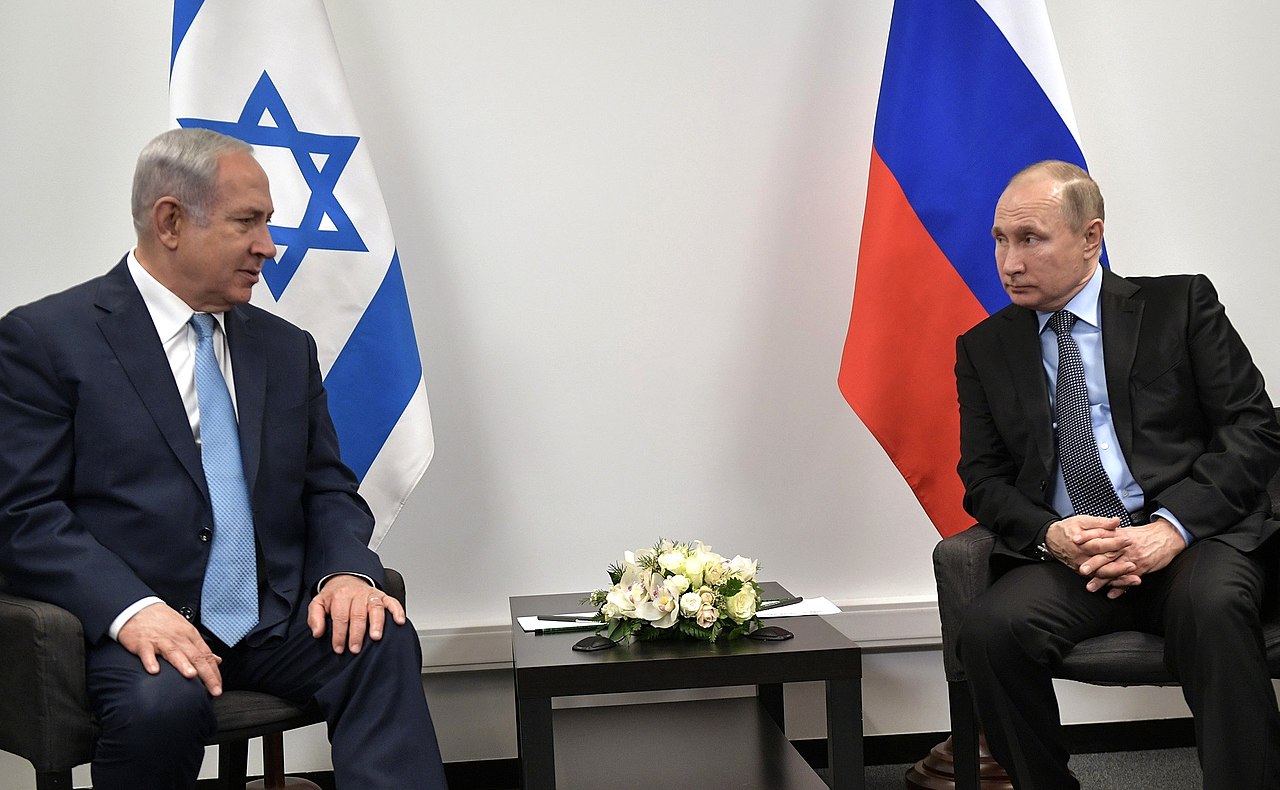
Benjamin Netanyahu and Vladimir Putin, 29 January 2018 / Пресс-служба Президента Российской Федерации via Wikimedia Commons
Most of us react emotionally to war. We want to discuss it in terms of good and evil. We want to declare who are the good guys and who are the bad guys. And we want referees to enforce rules.
War is not a football match.
War is a very rational act.
The object of war is to win.
The who, what, where, when, and how of war has been competently articulated by Chinese military general, strategist, philosopher, and writer Sun Tzu (544-496 BC) in The Art of War . Many of those lessons have been incorporated into modern managerial methods.
The why of war, to my mind, is more appropriately spelled out by the Prussian general and military theorist Carl von Clausewitz (1780-1831) in Vom Kriege (“On War’). Let me break down some of the propositions:
- War is a political act driven by the pursuit of policy objectives.
- The “remarkable trinity” consisting of government, the military, and the people, all influence war's character.
- War is clouded by uncertainty and limited information, often referred to as the "fog of war."
- War is inherently uncertain and complex, making it difficult to predict and control. Military campaigns can be planned only to a small degree because of this “friction” — incalculable influences or events leading to difficulties, uncertainties, and disruptions that hinder military operations.
- Identifying and targeting the enemy's centre of gravity, or their main source of strength, is crucial in achieving victory.
- There is a "culminating point," at which a military campaign reaches its peak and starts to decline.
- Limited warfare — when political objectives can be achieved without total destruction — is necessary.
- The people's will and support are crucial in sustaining a war effort and influencing its outcome.
- One should distinguish between strategy (the overarching plan) and tactics (the methods used to implement the plan).
- The impact of war on society is destructive in nature, hence the need for responsible use of military force.
- War is “the continuation of policy with other means”. In essence, war should be seen as a means to achieve political goals, and military strategy should align with political objectives.
There are two major conflicts being fought as I write these words. The first is Russia’s “Special Military Operation” in Ukraine. The second is between the state of Israel and the Islamic Resistance Movement (Hamas) in Gaza and Israel. Let’s examine both conflicts in light of the points I made above:
- The policy objectives of Russia in the Ukraine conflict is demilitarization and denazification of Ukraine and to secure regional autonomy for the predominantly Russian-speaking areas of Ukraine. The policy objectives of Israel is the eradication of Hamas as a threat.
- Russia’s government, military, and people appear to overwhelmingly speak in one voice. Israel’s government, military, and people appear to be divided.
- The fog of war is clear in both conflicts. Disinformation is abundant on all sides.
- Friction in both conflicts has been most visibly demonstrated in the use of mass-produced low-cost drones — an unpredicted entry to the war arsenal.
- Ukraine’s “centre of gravity” is the ongoing supply of Western-supplied arms and ammunition. Russia’s strategy there is a war of attrition. Hamas’s “centre of gravity” is its multiplicity of physical locations in the urbanized sprawl of Gaza. Israel’s strategy is to destroy those locations.
- The culminating point for both Russia and Israel will come when Ukraine and Hamas respectively lack the ability to defend themselves.
- Russia and Israel are both practicing limited warfare, albeit on different scales. Russia has avoided targeting territory outside of the predominantly Russian-speaking areas unless those were identified as military targets. Israel has publicly asked civilians in the north of Gaza to move to the south.
- The “people’s will and support” appears to be strong on the part of Russians and waning on the part of Ukraine. In Israel, it appears to be strong on the part of the Palestinians but fractured on the part of the Israelis.
- Russia has been steadfast in its strategy but has varied its tactics. Ukraine has never had a clearly defined strategy but has been steadfast in its tactics. Neither Israel nor Hamas appear to have a clear strategy at this point and both appear to be committed to tactics of maximum force.
- Russia has provided refuge within Russia to more than 1 million civilians fleeing the conflict zone. Israel has asked Palestinians in Gaza to leave, but their only option is to go to Egypt, which refuses to accept them.
- Both Israel and Russia have tried to achieve a path to peace through the Oslo Accords and the Minsk Accords respectively. Hamas has never recognized the Oslo Accords and has the complete destruction of the State of Israel as its core belief. Ukraine consistently violated the terms of the Minsk Accords and refuses to consider peace talks with Russia. War is therefore a continuation of those respective policy objectives by other means.
I will not go into my feelings as to who is right and who is wrong because my feelings do not matter.
The object of war is to win.
